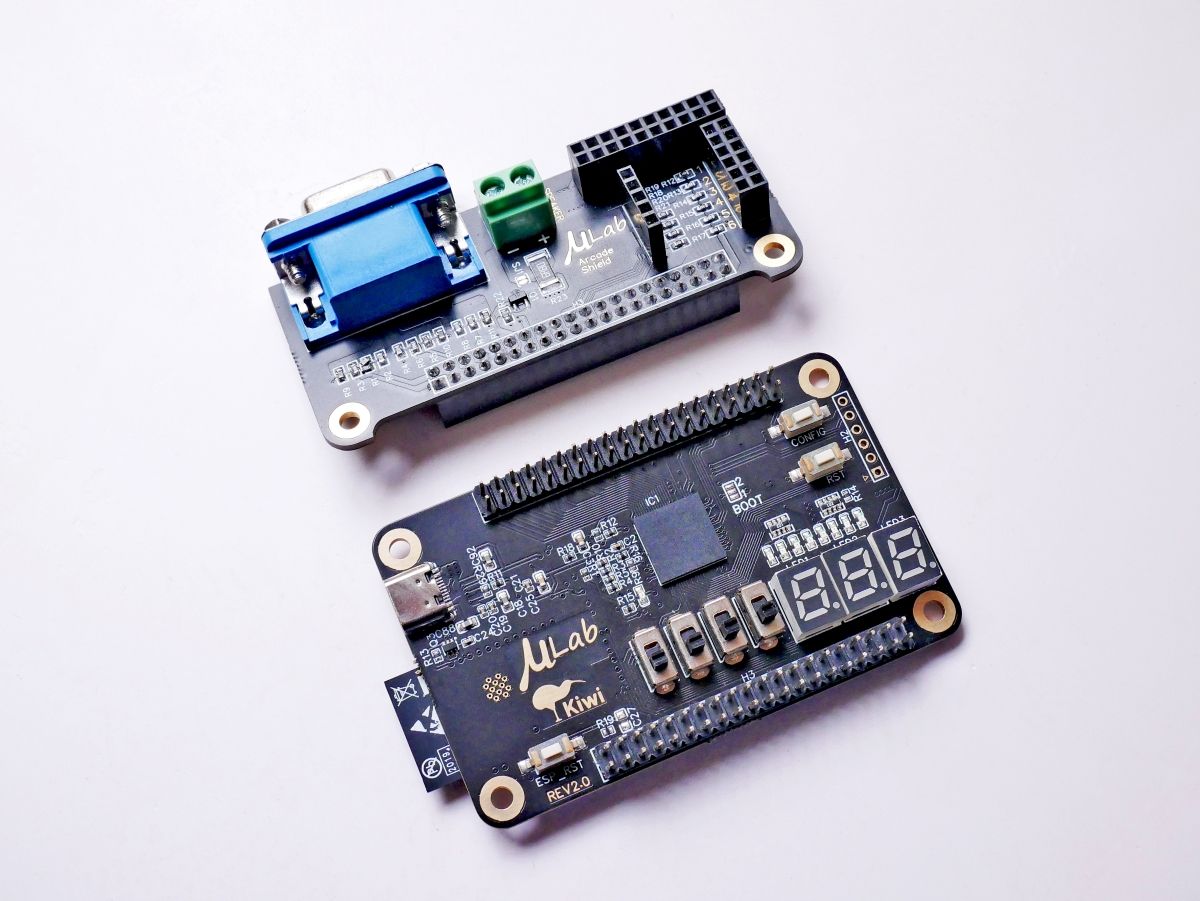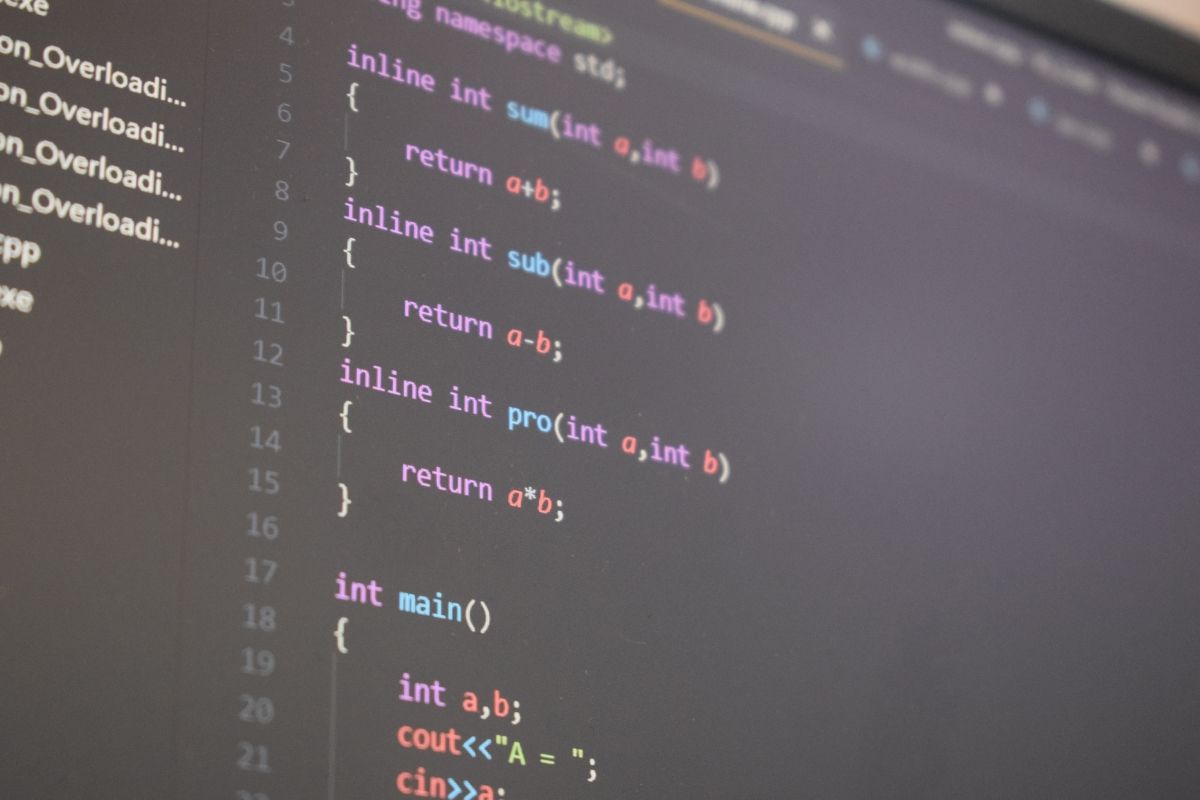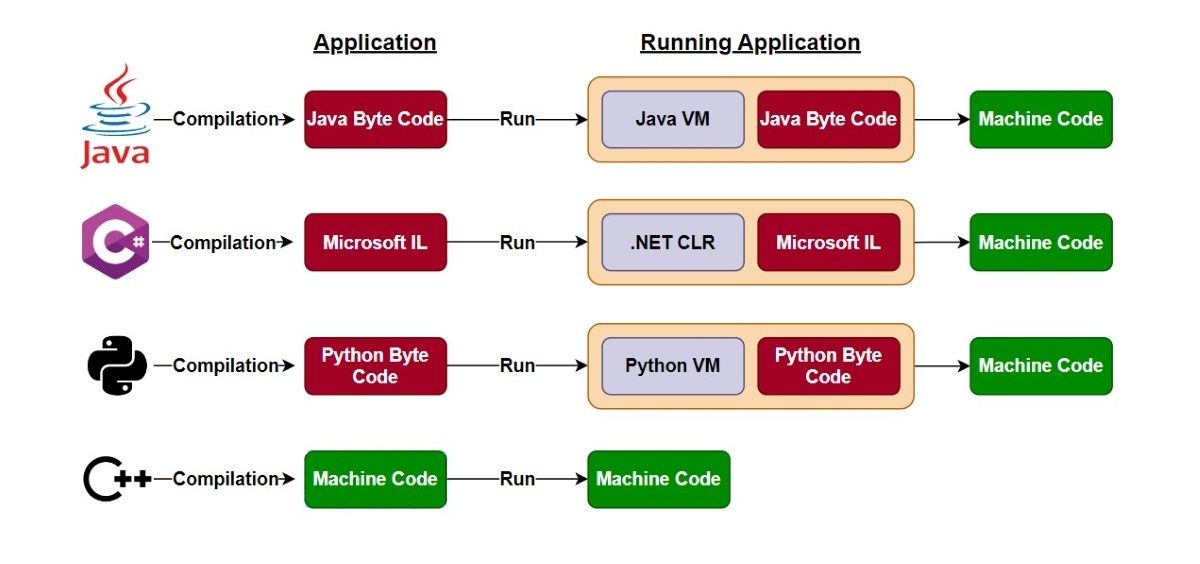C++ is a very powerful programming language that is actively used in many areas. Those who are new to the C++ programming language or want to master the language often have one question: why bother?
This programming language is quite old and not as popular as Python or JavaScript. Also, the C++ learning curve is more difficult than it is with these other languages. Despite all this, people still wonder about the importance of learning C++.
Different Tools for Different Problems
When considering the C++ programming language, it is impossible not to mention the issue of performance. C++ is a programming language that meets your high-performance expectations. C++ is an indispensable tool in applications where performance is important. If the program you want to develop needs to take advantage of the power of the hardware, C++ will be your biggest helper in this regard.
Since it is a software language close to the hardware, you have the chance to benefit from all the power of the hardware as you wish. For example, game engines, web browsers, embedded system applications, or HTTP servers use C++ heavily. In these performance-oriented technologies, C++ is a great choice. However, to understand this better, you can think of how a game engine works as follows.
Applications Demanding High Performance
Game engines are game development platforms that require high performance. In general, the task of game engines is to obtain a two-dimensional image of the physics, crash tests, and three-dimensional environment within the game. While the game engine is doing all this, it has to do a lot of mathematical operations in the background, such as matrix operations.
In some cases, these three-dimensional environments consist of millions of triangles. If you consider that all these triangles are represented by three points, you can guess that there is a huge amount of point data. To obtain an image, each of these points needs to go through many mathematical operations.
All this heavy processing has to run in just 1/60th of a second. As a result, it is necessary to do so many operations at a great speed. This means you have to take full advantage of the hardware. That's why game engines generally prefer C++.
Role of C and C++ in Performance
The C language is a common choice for the development of operating systems. Since you can use it to communicate directly with the hardware, you can perform low-level operations like direct memory access. In addition, almost all control in the C language is in the hands of the developer. The computer makes minimal changes to your code. This again leaves a very low mark on the memory.
C++ inherits many of these positive performance aspects from C. Moreover, C++ stands out much more today because it supports object-oriented programming.
Disadvantages Inherited From C
C++ emerged by adding support for object-oriented programming on top of the C language. C++ can use many C libraries. Unfortunately, the opposite is not always possible. When C++ first appeared, many technologies were already using C. So for many developers who wanted to use C code at that time, it was pretty easy to switch to C++.
However, C++ inherited many of the disadvantages of C, along with its good points. C++ is an old language that has added many additional features since its first release. While C is already a difficult language, C++ has become more complex with every extra feature it added to C++. That's why it's hard to master C++ language.
Also, because it has high hardware control, there will be a lot of overlooked errors. Dealing with and debugging these errors takes a lot of time and effort. Those who want to master C++ need to decide what they're going to use the language for and consider whether it's worth it. If you are looking for high performance, C++ is well ahead of its competitors in many aspects.
Developing With C++ Can Take a Long Time
Languages such as Java, C#, and Python emerged due to the complex structure and difficult learning curve of C++. If you don't need to develop a performance-oriented program, there's no need to use C++, bearing in mind the cost of time and effort involved. Some alternative languages are much easier to learn and more practical. That's why companies turn to program languages where they can develop apps faster when performance is not critical.
C++ has very few extra libraries, unlike Python and Java which come with many ready-made. You don't have to outsource or implement them yourself. In C++, on the other hand, you have to write most of the libraries you need. This, in turn, increases your chances of making mistakes and increases your development time.
Why Does C++ Run Faster?
The reason for this fast structure that distinguishes C++ from other languages is hidden in the way it is compiled. To understand this better, you can examine the following diagram:
You need to compile code that you write in C++. Via this process, your computer generates an application file you can run. This file contains native—or machine—code. You do not need any other programs or agents to run this file. Since it already contains machine code, your device will recognize it and run it.
However, languages such as Java, C#, or Python do not generate native code. Instead, they compile source code into an intermediate code. There are additional tools or programs you can use to translate this intermediate code application into machine code. While these programs convert your code to machine code, they consume various system resources.
C++'s compile and run speeds are very high because there are no overheads like in other languages.
Using C++ With Statistics
C++ has a seriously large user base. It's consistently one of the most popular languages that programmers use, according to GitHub statistics. Other languages like Python, JavaScript, and PHP show ups and downs periodically. But C++ developers are always in demand.
Python has gained significant momentum with its machine-learning libraries. Engineering branches beyond just programming and software engineering actively use Python for their daily work. JavaScript libraries, too, are popular for both the backend and the front end. There's a constant movement in the JavaScript language as it is easy to learn and use.
However, C++ is popular across databases, security infrastructures, hardware, and machine learning libraries. As a result, C++ is not heavily influenced by current frameworks or libraries. Moreover, it still does not have a serious competitor in these fields.
Many beginners turn to languages with easier learning curves such as Python and JavaScript, or prefer career routes where these languages are popular. But technology companies are still looking for C++ developers too.
Is C++ Still Worth Learning?
C++ standards are constantly evolving. Especially with the features added after 2011, C++ is now easier to use. With the increasing number of developers and libraries, the need for C++ developers is increasing. Many servers, game engines, graphics tools, office programs, and scientific computing applications that web developers frequently use C++.
In such a large universe, of course, there is a great need for C++ developers. If you are going to draw your career path with C++, a challenging and rewarding road awaits you.




